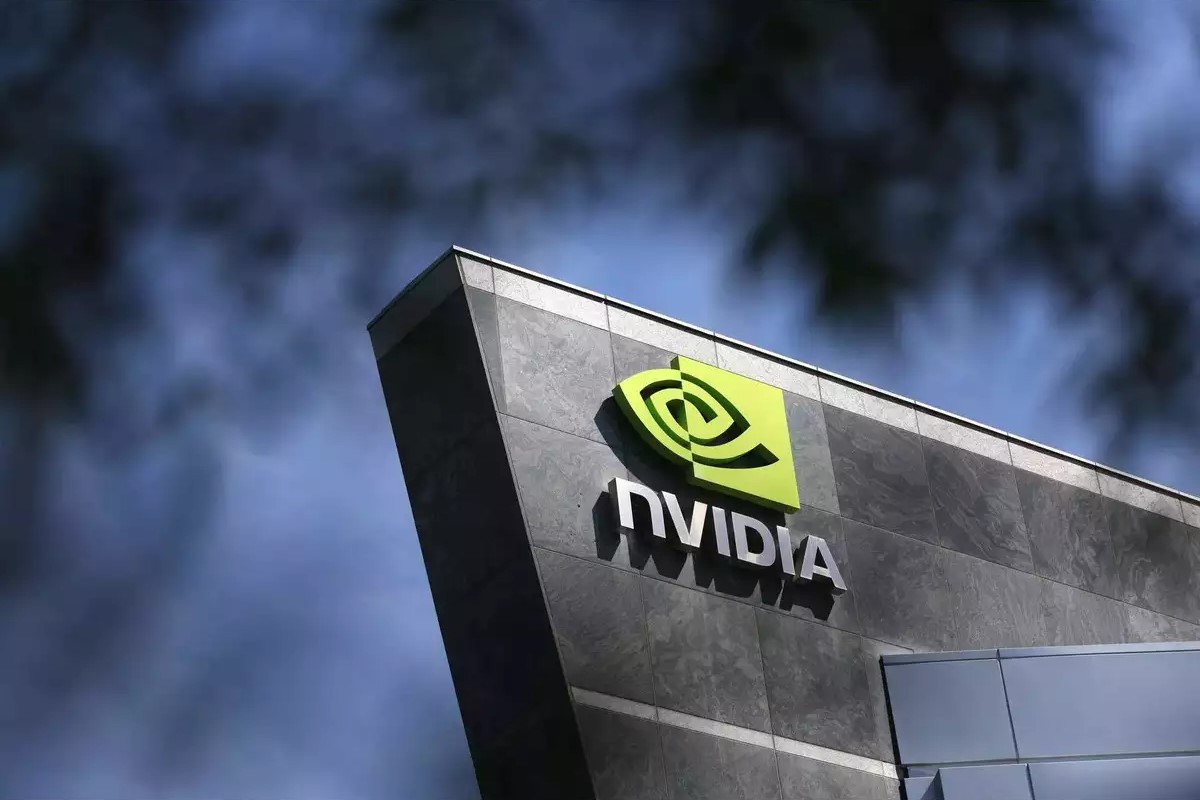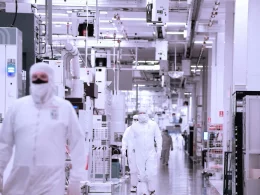NVIDIA Overtakes Amazon and Alphabet in Market Capitalization, Becoming Third-Largest on the US Stock Market
Since the beginning of the year, NVIDIA has outpaced Amazon and Alphabet in terms of market capitalization, securing a third position in the US stock market behind Apple and Microsoft. Furthermore, over the previous 30 trading sessions, NVIDIA’s shares have outperformed Tesla’s shares in terms of transaction volume, becoming the most bought and sold on the US stock market.
According to Reuters, daily trading of NVIDIA’s shares during this period averaged $30 billion compared to Tesla’s average daily trading volume of not more than $22 billion. Since the beginning of this year, NVIDIA’s shares have increased in value by more than 40%, though they fell 4.35% yesterday, reducing the company’s capitalization by $78 billion. Nevertheless, NVIDIA’s share price decrease did not uniquely influence the tech giant dynamics as other tech giants also saw their shares depreciate.
NVIDIA Shares: Anticipating the Quarterly Report
Recently, NVIDIA’s shares have almost parabolically strengthened in value, thereby causing analysts to anxiously anticipate the upcoming quarterly report. This report is expected to either trigger further growth or incite a further correction. As per data from Bloomberg and Susquehanna, the range of NVIDIA’s capitalization change tomorrow is limited to a possible 15% decrease or 17% increase in share price. This range represents hundreds of billions of US dollars at stake by investors due to the boom induced by the development of artificial intelligence systems.
Analysts Expect Significant NVIDIA Revenue Increase
According to LSEG data cited by CNBC, analysts on average expect NVIDIA’s revenue to have grown by 240% in the last quarter on a yearly basis, reaching $20.6 billion. Net income is expected to increase exponentially from $1.41 billion to $10.5 billion. The income ratio will likely rise from the 74% achieved in the third quarter. NVIDIA’s server segment revenue may quadruple to $17.06 billion. The gaming segment may be limited to a revenue growth of 49% to $2.72 billion as experts predict. However, it should be noted that, the A.I. boom is also boosting demand for gaming video cards, particularly in China where they are actively being converted into computation accelerators.





